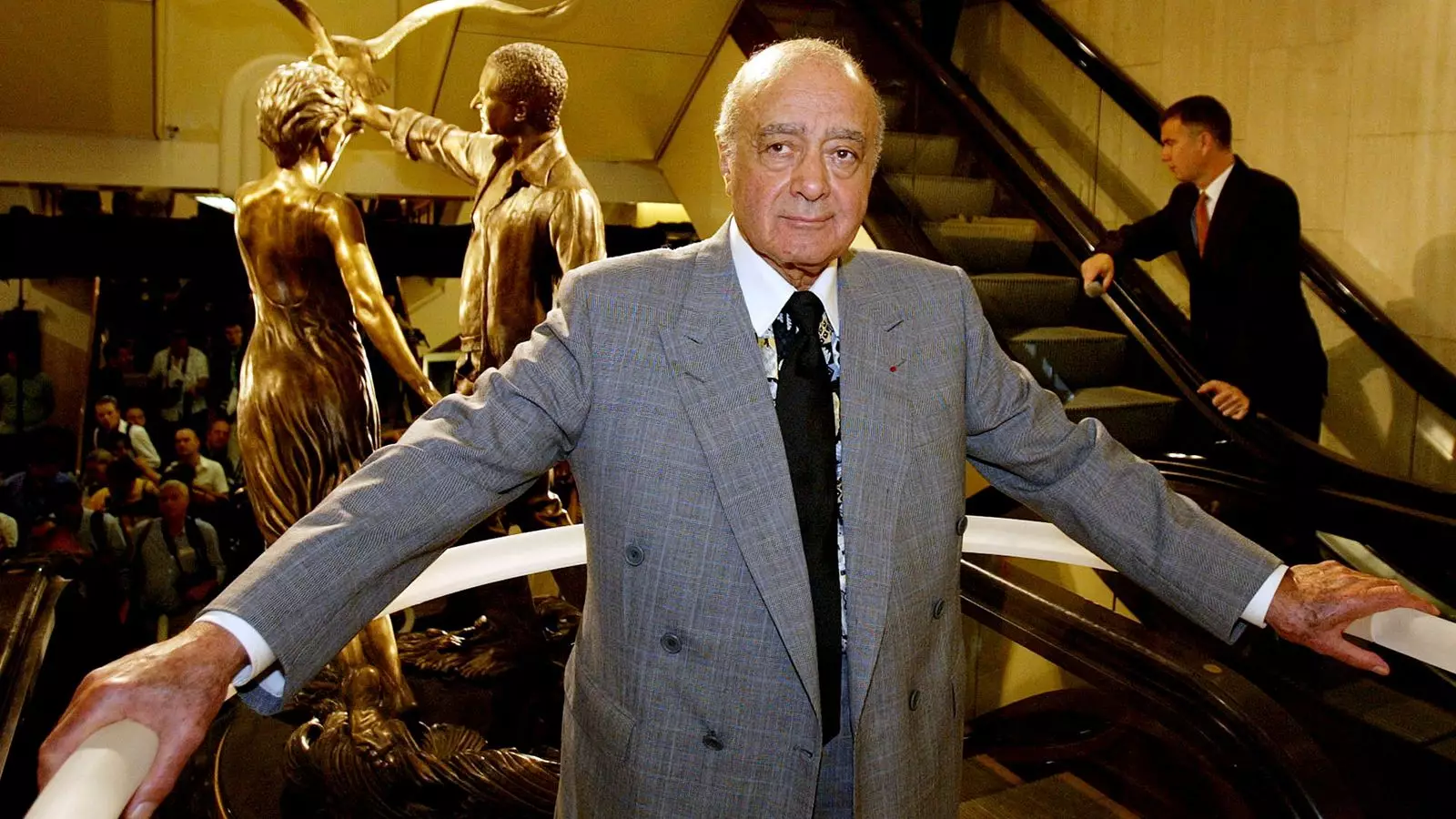The recent allegations against Mohamed Al Fayed have thrust the once-revered billionaire into a harrowing spotlight, revealing a tapestry of abuse that is as shocking as it is tragic. Once the proud owner of Harrods, Al Fayed’s death in 2023 has not quelled the voices of countless alleged victims, who are now bravely coming forward to share their experiences. These claims paint a disturbing portrait of a man whose power masked a “vast web of abuse”. The legal narratives emerging from this controversy raise questions not only about Al Fayed’s actions but also about the systemic failures that may have enabled such behavior.
A Press Conference with Impact
In a press conference held in London, a legal team representing over 20 alleged victims revealed the chilling details that echo some of the most notorious figures in the realm of sexual abuse. Dean Armstrong KC likened Al Fayed to infamous abusers like Jimmy Savile, Jeffrey Epstein, and Harvey Weinstein, suggesting that this case is a critical testament to the prevalence of predatory behavior across various societal levels. Personal accounts from alleged victims, particularly from individuals like Natacha, who described their experiences as “naive” young workers at Harrods, brought a profound sense of urgency and humanity to the proceedings.
Natacha’s harrowing story recounts her fear and innocence at the age of 19 when she first stepped into the high-stakes environment of Harrods. Her experience, where she allegedly fought off an assault in Al Fayed’s private office, exemplifies the chilling reality faced by many young women who found themselves vulnerable and exposed in a corporate environment that seemed more interested in power than protection.
The allegations indicate a shocking degree of systemic failure within Harrods, as many of the alleged victims were reportedly aged between 15 and 24 and seemed to have been targeted specifically for their roles. The claims also suggest that these young women underwent medical examinations, including sexual health screenings, presumably as a precondition for their employment. The systemic nature of these abuses, combined with Harrods’ apparent negligence in protecting its employees, demands a thorough examination of corporate responsibility and accountability.
Armstrong’s assertion that Harrods’ management failed its employees illustrates a broader issue within corporate culture, where such behaviors can persist unchecked. The impact of these allegations raises urgent calls for a reevaluation of workplace safety measures—not just for Harrods, but for all institutions that employ vulnerable individuals.
Harrods’ response to the allegations has been one of condemnation towards Al Fayed and an expressed commitment to prioritizing employee welfare. In their statement, they acknowledged their failure to protect those who worked under Al Fayed’s influence and conveyed a sincere apology to the victims of his alleged actions. However, critics argue that apologies must be accompanied by concrete actions that promote transparency and reform. Many former employees are now questioning whether the changes are merely surface-level or if they indeed signify a commitment to creating a safer environment.
It remains to be seen how these cases will influence public perception and the inner workings of Harrods. There is a growing expectation for corporate entities to take meaningful and responsible actions when such allegations surface, as failure to do so only perpetuates a toxic culture that could harm future generations of employees.
This case serves as a crucial reminder of the ongoing struggle against sexual violence and the need for continued advocacy for victims. The allegations surrounding Al Fayed not only underscore the importance of providing a safe work environment but also point toward a broader societal issue of power dynamics, privilege, and the mechanisms that often obscure voices of the vulnerable.
As the legal processes unfold, it is imperative for society to remain vigilant and supportive of survivors while demanding accountability from those in positions of power. The legacy of individuals such as Al Fayed will undoubtedly mar the institutions and reputations that they once seemed to elevate. It is now the responsibility of both the public and the corporate sector to ensure that such abuses are not tolerated and to pave the way for genuine reform in workplaces everywhere.
The unfolding narrative surrounding Mohamed Al Fayed’s alleged abuses serves as a clarion call for vigilance, reform, and a reassessment of our corporate and societal norms, establishing a framework that protects the vulnerable and prioritizes justice.


Leave a Reply